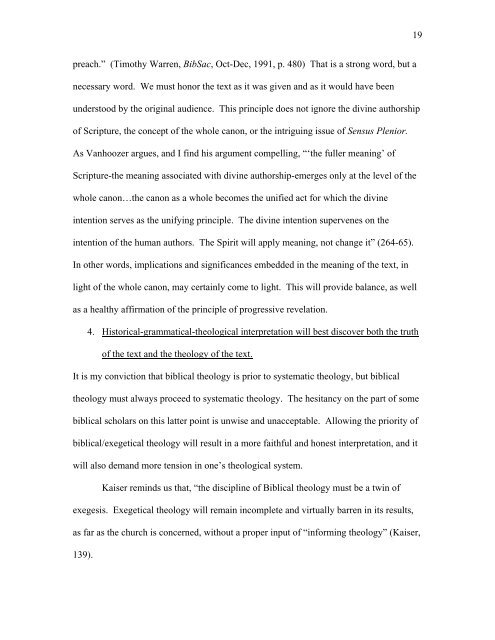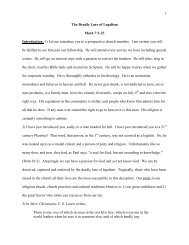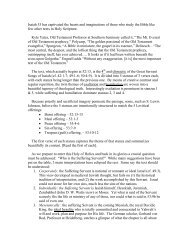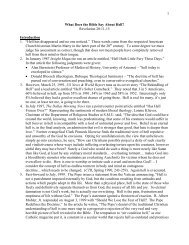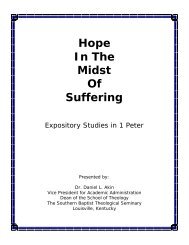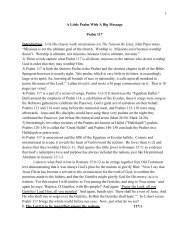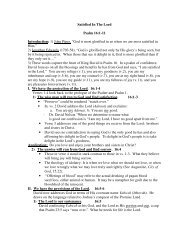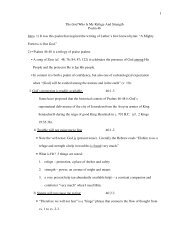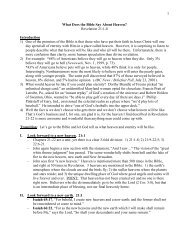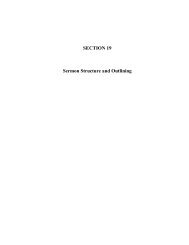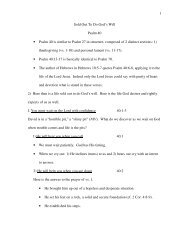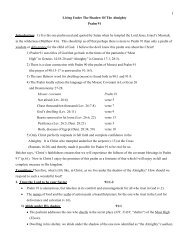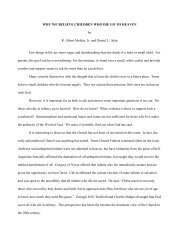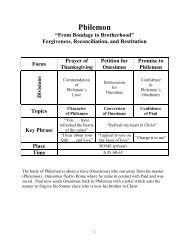Truth, Inerrancy and Bible Exposition: How We Should ... - Daniel Akin
Truth, Inerrancy and Bible Exposition: How We Should ... - Daniel Akin
Truth, Inerrancy and Bible Exposition: How We Should ... - Daniel Akin
Create successful ePaper yourself
Turn your PDF publications into a flip-book with our unique Google optimized e-Paper software.
19preach.” (Timothy Warren, BibSac, Oct-Dec, 1991, p. 480) That is a strong word, but anecessary word. <strong>We</strong> must honor the text as it was given <strong>and</strong> as it would have beenunderstood by the original audience. This principle does not ignore the divine authorshipof Scripture, the concept of the whole canon, or the intriguing issue of Sensus Plenior.As Vanhoozer argues, <strong>and</strong> I find his argument compelling, “‘the fuller meaning’ ofScripture-the meaning associated with divine authorship-emerges only at the level of thewhole canon…the canon as a whole becomes the unified act for which the divineintention serves as the unifying principle. The divine intention supervenes on theintention of the human authors. The Spirit will apply meaning, not change it” (264-65).In other words, implications <strong>and</strong> significances embedded in the meaning of the text, inlight of the whole canon, may certainly come to light. This will provide balance, as wellas a healthy affirmation of the principle of progressive revelation.4. Historical-grammatical-theological interpretation will best discover both the truthof the text <strong>and</strong> the theology of the text.It is my conviction that biblical theology is prior to systematic theology, but biblicaltheology must always proceed to systematic theology. The hesitancy on the part of somebiblical scholars on this latter point is unwise <strong>and</strong> unacceptable. Allowing the priority ofbiblical/exegetical theology will result in a more faithful <strong>and</strong> honest interpretation, <strong>and</strong> itwill also dem<strong>and</strong> more tension in one’s theological system.Kaiser reminds us that, “the discipline of Biblical theology must be a twin ofexegesis. Exegetical theology will remain incomplete <strong>and</strong> virtually barren in its results,as far as the church is concerned, without a proper input of “informing theology” (Kaiser,139).


